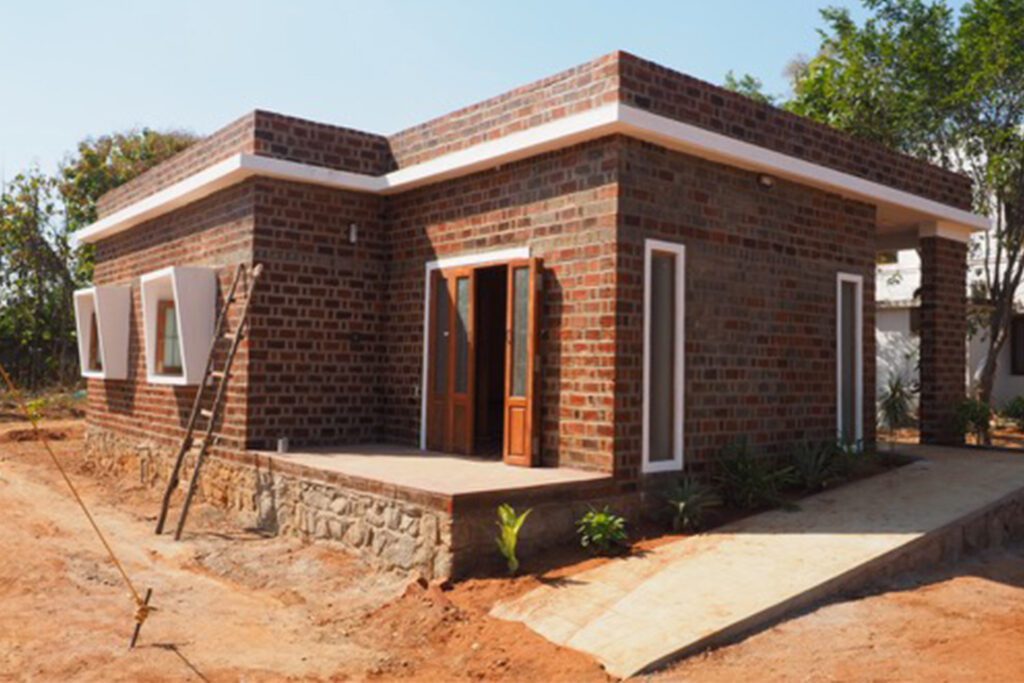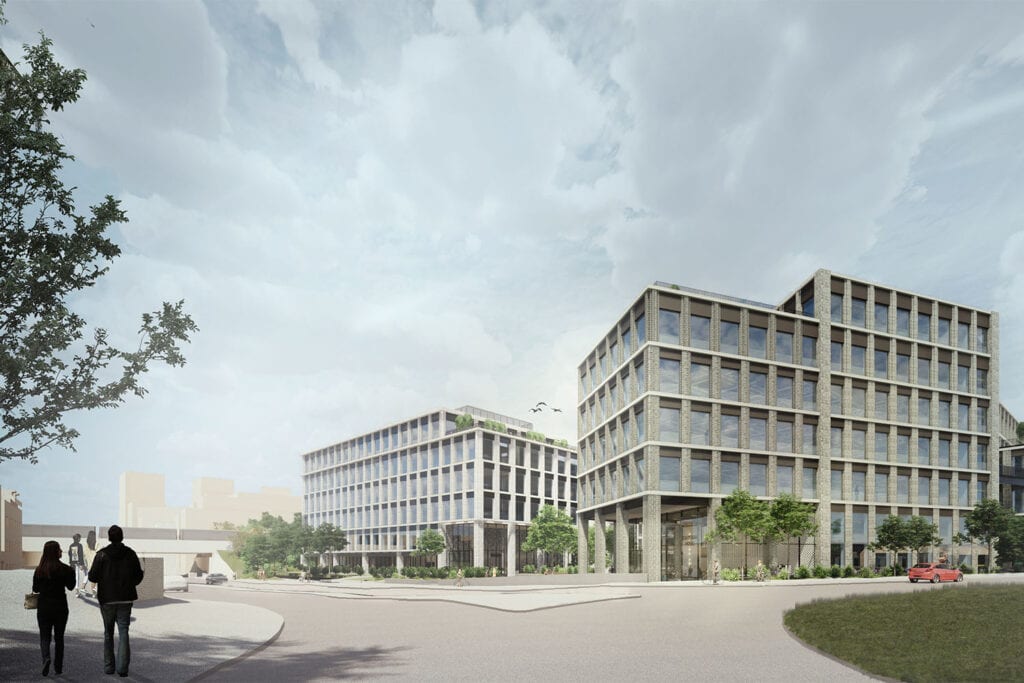Influencing new sustainable housing developments in India through collaboration
Buro Happold has played a key role in problem solving sessions for a sustainable housing project in India. The ‘eco-house’ prototype has formed the basis for future expansion of similar houses in Tirunelveli, Tamil Nadu.
The SURGe project (Smarter Urbanisation and Rapid Growth) is an initiative to encourage innovation in sustainable development via support to Social Change and Development (SCAD). Buro Happold’s Urban C:Lab group, a research collective created in 2018 to explore emerging trends and challenges, has been helping SURGe in achieving their objective to build experimental, low-energy, sustainable houses for communities in south India.
SURGe began with a prototype ‘eco-house’ at SCAD’s urban ‘campus’ at Tirunelveli. The prototype was built in 2019. Its location, Tirunelveli, is referred to as the “Oxford of south India” because of a high concentration of education establishments, especially focusing on science, technology and engineering.
The prototype housing unit was designed for local community members in Tirunelveli, with a focus on sustainability and positive environmental considerations. Doctor Nicholas Faulk, founder of Urbed (a UK research-based consultancy), funded the build of the initial eco-house and a project manager.

There were distinct considerations that prompted the building of the eco-house and potential larger scale deployment in India, including: the importance of sustainable water solutions, the creation of a type of housing that can be considered incremental (ie initial plots that enable subsequent extensions and improvements) and the use of reused/recycled materials. In this way, future deployment of housing in this project will minimise the consumption of resources and enable mid-sized cities such as Tirunelveli to grow in a sustainable way.
“We were able to drive the thinking around sustainable financing, as well as building houses. The work done by C:Lab has driven holistic thinking and sustainable development through collaboration.”
Jack Rose, Associate Director and C:Lab member
After the prototype eco-house was built, Buro Happold’s C:Lab collaboration team brainstormed with teams from Urbed and SCAD on defining the situation, considering the key question of: ‘How do we deploy sustainable solutions in a society to achieve win-win outcome for key stakeholders?’

Discussing the problem statement
Vimal Karpe took on the lead on C:Lab’s collaborative work on this project. She said, “We contributed to four problem solving sessions and workshops with different collaborators on the topic of how to apply sustainable society principles in this context. We shared our experience with similar project elsewhere in India and made suggestions on how end user consultation could be carried out by SCAD.”
“SURGe’s problem statement completely changed when we started talking to them. It moved away from the technical discussions and became about: ‘How can sustainable solutions be deployed in small scale societies?’
Vimal Karpe
The protype eco-house was completed prior to the Covid-19 pandemic; the project was then placed on hold. Now that the delay caused by the pandemic is over, the SCAD team are focusing on resolving issues with user acceptability and affordability. They aim to create awareness about the eco-house project, including upskilling local labourers so future eco-houses can easily be built to specification. From then, the vision is to expand the number of eco-houses across SCAD’s site in Tirunelveli.
Centre for sustainability
Members from C:lab also contributed to the development of a business case for establishing a ‘centre for sustainable development’ within SCAD’s campus at Tirunelveli. C:Lab ran a sprint to brainstorm with the key stakeholders, helping them to define objectives and prioritise activities for the centre and for future eco-houses. The centre has now been opened to promote sustainable initiatives such as water management, organic farming and training programmes to share technical knowledge of the prototype eco-house.

Deploying sustainable housing on larger scale in India
As part of the collaboration, C:Lab members presented at the Bristol Housing Festival on the topic of developing sustainable neighbourhoods in India and how to reconcile diverse interests. Vimal Karpe proposed business models for deployment of the eco-house at different scales and how it could be a success for all stakeholders. She said, “When we tie in user expectations, green finance and business objectives for companies, that’s when we are looking at deployable solutions.”






